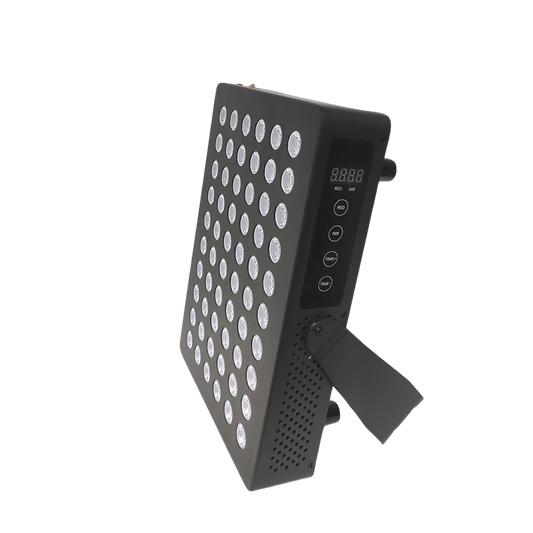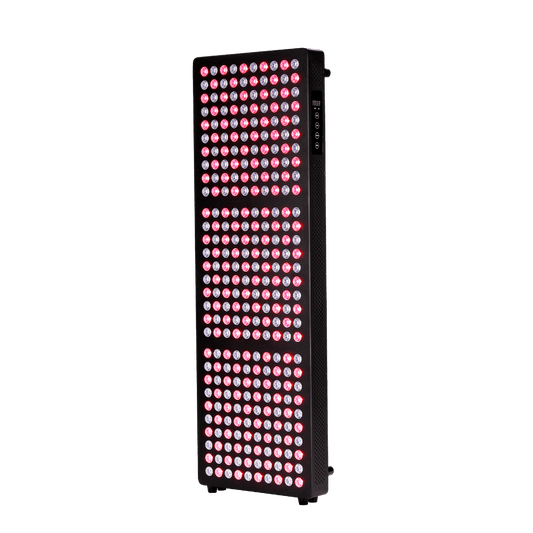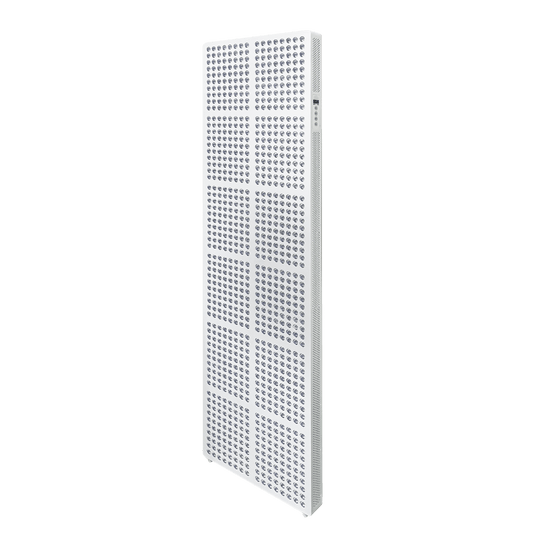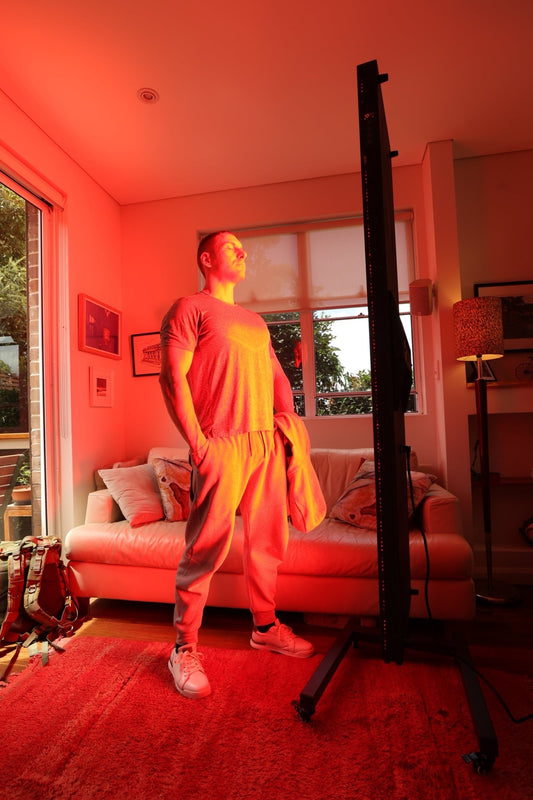
Single vs Dual Lens LEDs: Why Single-Chip Designs Are Better
Some brands promote dual-chip or dual-lens LEDs as more powerful - but this is often just marketing. What truly matters is:
- True power output and irradiance
- Number of optical output points (lenses)
- Long-term reliability and thermal performance
🔢 Configuration Comparison (273 W Panel)
300 Single-Chip LEDs:
- 300 chips total (1 per lens)
- Each chip receives 0.91 W
- 300 individual lenses = maximum coverage and uniformity
150 Dual-Chip LEDs:
- 300 chips total (2 per lens)
- Each chip receives 0.91 W
- Only 150 lenses = reduced light distribution
300 Dual-Chip LEDs:
- 600 chips total (2 per lens)
- Each chip receives just 0.46 W
- 300 lenses = good coverage, but lower energy per chip
🔍 Why Single-Chip LEDs Perform Better
1. More Lenses = Better Coverage
Panels with more lenses deliver more even light. Uniform irradiance is essential for effectiveness. See Huang et al. (2009), which highlights how consistent energy delivery improves results in photobiomodulation.
2. Dual-Chip Panels Can Be Misleading
Panels with 600 chips (300 dual-chip LEDs) often split the same 273 W of power, giving each chip only 0.46 W. That's less output per chip—not more—despite inflated marketing claims.
3. Dual-Chip LEDs Fail Sooner
Dual-chip modules create more heat in less space, leading to thermal stress and faster failure. Studies confirm this:
- Study on thermal stress in multichip packages
- Thermal degradation in COB LED modules
- Thermal aging response in multi-chip LEDs
Choosing single lens LEDs is one of the reasons our panels perform so well and boast a 100,000 hour LED lifetime rating - about 10 years of continuous use!
✅ Summary
- Single-chip LEDs deliver more power per lens and better coverage
- Dual-chip LEDs often split power and reduce effectiveness
- Dual-chip modules have higher failure rates due to heat stress
When choosing a panel, focus on real specs like power, lens count, and measured irradiance—not inflated chip counts or vague marketing terms.








